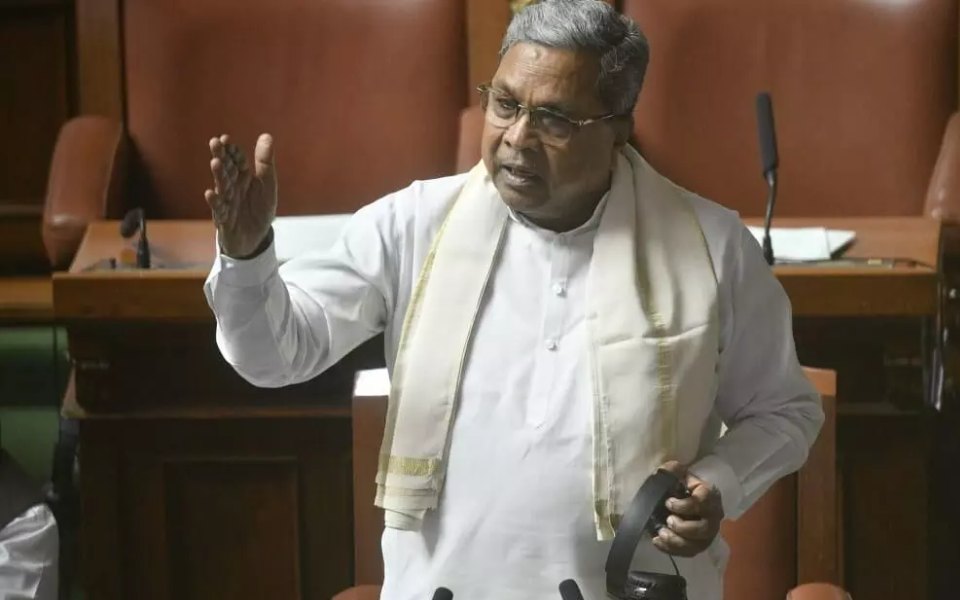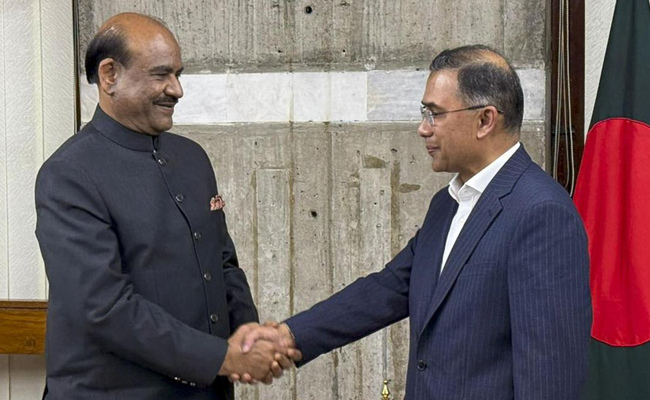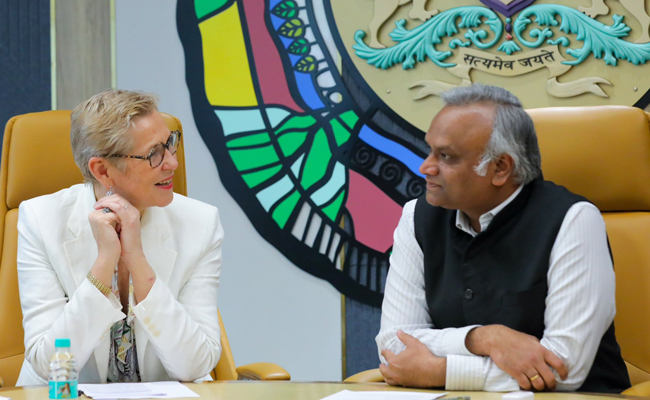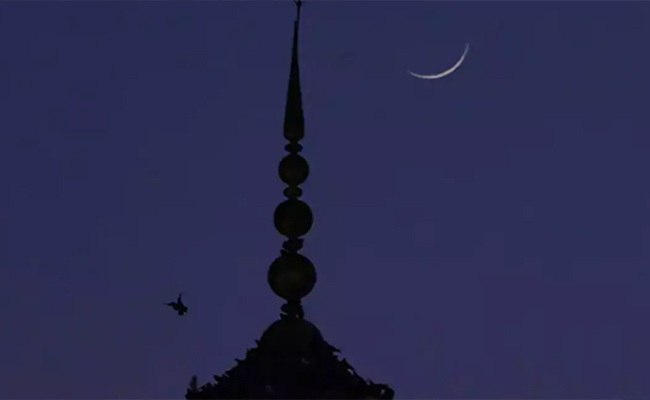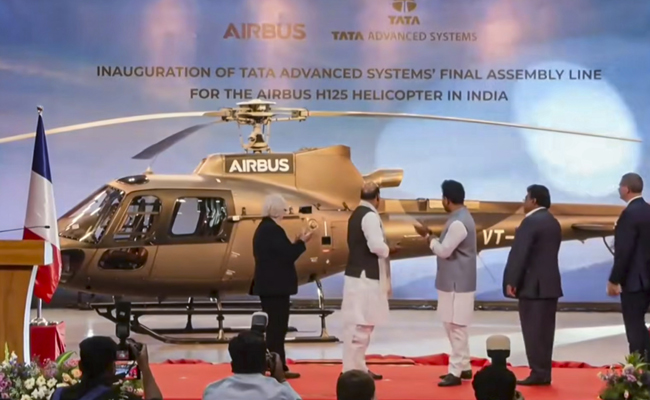Bengaluru, Apr 17 (PTI): Amid internal differences over the Social and Educational Survey report, popularly known as 'caste census', a special meeting of Karnataka cabinet that was convened on Thursday to discuss it, ended inconclusive, without any major decision.
However, denying any internal rifts, ministers who attended the meeting said they discussed the parameters used for the survey, and sought for more information and technical details from senior officials.
The cabinet will once again discuss the survey report on May 2 and decide on it.
"The cabinet has discussed the report in detail and it was felt that more information and technical details were required for discussion. So, senior officials have been asked to provide it. The discussion today was incomplete," Law and Parliamentary Affairs Minister H K Patil said.
Briefing reporters, he said that the discussions happened in a cordial atmosphere, and several matters like population, backwardness, the parameters that were used during the social and educational survey, the economic parameters that were considered, were all discussed to an extent.
As discussions were incomplete, it will be discussed once again. "As the next cabinet meeting will be held in MM Hills in Chamarajanagar district with focus on developmental issues of the region, it has been decided to discuss this matter once again in the cabinet that will be held on May 2, and make a final decision," he added.
According to sources, some ministers expressed reservations about the survey report, citing concerns expressed from several quarters calling it unscientific and outdated, and about undercounting. Following this, Chief Minister Siddaramaiah asked all ministers to give their opinion in writing or verbally.
Soon after the meeting ended, Transport Minister Ramalinga Reddy, speaking to reporters, said that the chief minister had asked ministers to give their opinion before the next cabinet meeting.
Though there were reports that a couple of ministers spoke in an "upset tone" during the discussion on the survey report, expressing their reservation about it, this was not confirmed by other ministers present in the cabinet meeting. They maintained that the meeting was held in a cordial atmosphere.
Various communities, especially Karnataka's two dominant ones -- Vokkaligas and Veershaiva-Lingayats -- have expressed strong reservations about the survey that has been done, calling it "unscientific", and have demanded that it be rejected, and a fresh survey be conducted.
Objections have also been raised by various sections of society, and there are also strong voices against it from within the ruling Congress.
However, not everyone is opposed. Leaders and organisations representing Dalits and some sections of OBCs, among others, are in support of it, and want the government to make the survey report public and proceed with it, stating the government has spent about Rs 160 crore public money on it.
With strong disapproval from the two politically influential communities, the survey report may turn out to be a political hot potato for the government, as it may set the stage for a confrontation, with Dalits and some sections of OBCs, among others demanding for it to be made public and implemented.
Responding to a question, was there any discussion regarding pros and cons of the survey report at the cabinet, Patil said, "nothing like that....Parameters used for the survey like the person's source of income, whether he or she is owning cattles -- such things came up for discussion. Some senior ministers gave their guidance on certain matters and sought for some details."
"Details will be provided by officials. It will be discussed in the next cabinet and decided," he said.
To a question whether there was discussion on the contentious issues of population strength of various communities, the Law Minister said the misinterpretations that are going on regarding the population are not completely true and it has already been clarified. "94.17 per cent of the population was surveyed."
Asked if anyone disputed about the Vokkaliga and Veerashaiva-Lingayat population mentioned in the survey, he said that matter did not come up for discussion today.
Findings of the survey is said to be contrary to the "traditional perception" with regard to the numerical strength of various castes, especially the dominant Veerashaiva-Lingayats and Vokkaligas, making it a politically sticky issue.
According to sources, ministers from these two communities have placed their objections in this regard, during the cabinet meeting.
Both Veershaiva-Lingayats and Vokkaligas, and also few other communities have alleged that their various sub castes have been divided among different categories of OBC, resulting in decrease in their respective population numbers. They have alleged that many households were left out from the survey or undercounting.
After a long wait, the Karnataka State Commission for Backward Classes' report was placed before the cabinet for the first time on April 11.
The Siddaramaiah-led Congress government (2013-2018) had in 2015 commissioned the survey in the state.
The State Backward Classes Commission, under its then chairperson H Kantharaju, was tasked with preparing a caste census report. The survey work was completed in 2018 towards the end of Siddaramaiah's first tenure as Chief Minister, and the report was finalised by his successor K Jayaprakash Hegde in February 2024.
Let the Truth be known. If you read VB and like VB, please be a VB Supporter and Help us deliver the Truth to one and all.
New Delhi (PTI): Lok Sabha Speaker Om Birla on Tuesday attended the swearing-in ceremony of new Bangladesh Prime Minister Tarique Rahman in Dhaka, and said India stands ready to support Bangladesh's endeavours to build a democratic, progressive and inclusive nation.
Separately, the speaker called on the new Bangladesh prime minister and conveyed the wishes of Prime Minister Narendra Modi.
He also handed over an invitation from Prime Minister Modi to Rahman to visit India, officials said here.
“Glad to attend the swearing-in ceremony of the new government of Bangladesh led by Prime Minister Tarique Rahman in Dhaka today. India stands ready to support Bangladesh’s endeavours to build a democratic, progressive and inclusive nation,” Birla posted on X.
Bangladesh High Commissioner to India, Riaz Hamidullah, said in a post on X, “Prime Minister Tarique Rahman conveys his greetings to India and PM Narendra Modi to the visiting India Lok Sabha Speaker Om Birla at a courtesy meet following the swearing-in of the new government.
“Speaker Birla conveyed wishes and an invitation to India. Both leaders expressed optimism to work together for the well-being of the people of Bangladesh and India, pursuing a people-centric menu of cooperation.”
Birla also met Maldives President Mohamed Muizzu, Bhutan Prime Minister Tshering Tobgay and other leaders on the sidelines of the event.
Led by Rahman, the Bangladesh Nationalist Party (BNP) swept to power with a two-thirds majority with 49.97 per cent votes and 209 seats in the polls held on February 12, results for which were declared on February 13.
The Jamaat-e-Islami, which was opposed to Bangladesh's independence from Pakistan in 1971, registered its best-ever performance with 31.76 per cent votes and 68 seats.
The National Citizen Party (NCP) secured the third-highest number of seats, six, and 3.05 per cent votes.
Bangladesh had invited Narendra Modi to the ceremony, but the prime minister could not attend the event as he was scheduled to hold talks with French President Emmanuel Macron in Mumbai on Tuesday.
On reaching Dhaka, Birla said the swearing-in of Rahman was an important moment that would strengthen people-to-people relations and shared democratic values between the two neighbours.
“Honoured to be in Dhaka representing India at the swearing-in ceremony of the new government led by Tarique Rahman as the prime minister. It's an important moment that will strengthen people-to-people ties and shared democratic values between our two nations,” Birla said.
Birla was accompanied by Foreign Secretary Vikram Misri and other officials.

